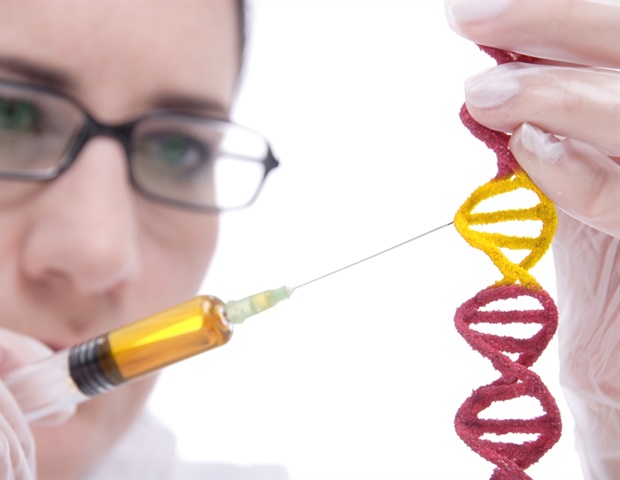Researchers from the group of Eva van Rooij in collaboration with the UMC Utrecht recognized a brand new mutation that results in the cardiac illness arrhythmogenic cardiomyopathy (ACM). They assessed the impact of this mutation on coronary heart muscle cells and obtained new insights into the underlying mechanism that causes the illness. The outcomes of this research, printed on March 2nd in Stem Cell Reviews, might contribute to the event of latest therapies for ACM.
desmosomes
Thousands and thousands of coronary heart muscle cells contract to let the guts fulfill its pumping operate. To verify these contractions are executed properly, it is crucial that the person coronary heart muscle cells talk with one another. Due to this fact, coronary heart muscle cells must be tightly linked with one another. In a wholesome coronary heart, these connections are made up of advanced protein buildings that kind a bridge between the cells, so referred to as desmosomes. When mutations happen in genes that contribute to those buildings, this may result in the event of arrhythmogenic cardiomyopathy (ACM). ACM is a progressive and infrequently hereditary illness wherein the guts fails to contract correctly. Though 1 in 5000 folks develop ACM all through life, loads stays unknown concerning the illness and no efficient remedy choices exist to remedy sufferers.
Discovery of a brand new mutation
We investigated the genetic materials of an ACM affected person and encountered a beforehand unknown mutation within the gene desmoplakin.”
Sebastiaan van Kampen, first writer of the research
Desmoplakin is likely one of the genes that’s answerable for the formation of desmosomes. To analyze the position of this mutation in ACM onset, the researchers cultured coronary heart muscle cells from the affected person within the lab. Van Kampen: “We in contrast these coronary heart muscle cells to the identical coronary heart muscle cells wherein we repaired the mutation utilizing CRISPR/Cas9 .The guts muscle cells that contained the mutation turned out to be much less tightly linked”. As well as, the researchers found that these cells have fewer of ion channels. These channels are essential for environment friendly propagation of the motion potential, {an electrical} sign that stimulates contraction, between coronary heart muscle cells. From this, they concluded that the brand new mutation can result in ACM in sufferers.
Underlying mechanism
A number of mutations are identified to result in ACM. However, the underlying mechanism that results in the illness stays largely unknown. To alter this, the researchers used the classy coronary heart muscle cells from the affected person as a mannequin for the illness. They found {that a} protein named PITX2 is extra extremely expressed within the “diseased” coronary heart muscle cells and that this protein is partly answerable for the lack of desmosomes and ion channels. “Once we eliminated the protein from the diseased coronary heart muscle cells, the degrees of ion channels and desmosomal proteins within the cells of the affected person confirmed a exceptional restoration,” explains Van Kampen. The PITX2 protein thus performs an essential position within the adjustments within the mutated coronary heart muscle cells.
Future therapies
The research, printed in Stem Cell Reviews, can probably contribute to the event of latest therapies for ACM. Moreover, the findings from this research supply new insights into the event of ACM that may be beneficial for future analysis. “Though we do not understand how the brand new mutation results in elevated ranges of PITX2, we see the identical taking place in a second mutation. It is doable that elevated ranges of PITX2 result in ACM within the context of many extra mutations,” says Eva van Rooij, group chief on the Hubrecht Institute and final writer of the research. Extra analysis into these completely different mutations is due to this fact important.
sources:
Journal reference:
van Kampen, SJ, et al. (2023) PITX2 induction results in impaired cardiomyocyte operate in arrhythmogenic cardiomyopathy. Stem Cell Reviews. doi.org/10.1016/j.stemcr.2023.01.015.

